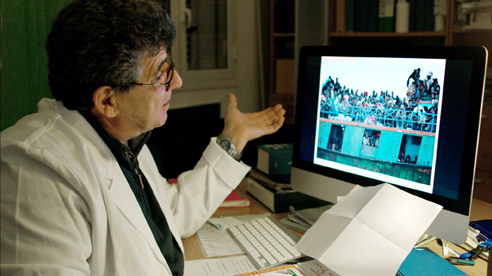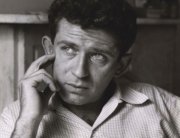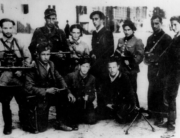Fire at Sea brings the viewer along for an extended stay on the European front line in the refugee crisis, beyond the usual limited doses of three-minute TV news stories and pitiful Instagrams of dead children. In just the last year, almost 48,000 migrants have come through the Italian island of Lampedusa, located about 127 miles south of Sicily and 81 miles east of central Tunisia. Almost 2,000 have died during the risky attempts to across the Mediterranean. The international press briefly descends on the picturesque harbor when the worst of these tragedies occur, scaring off tourists and leaving resentful residents in their wake.
Italian cinéma vérité documentarian Gianfranco Rosi lived on the island for a year, starting in late 2014, to learn the rhythms and responsibilities of the 4,500 year-round residents, from children to grandparents, fishermen, and professionals. Besides photographing beautiful and stormy days and nights and the low and high tides, he follows the local, naval, and NGO authorities, who have been dealing with the ebb and flow of migrants for decades before the civil wars in Syria and Africa ratcheted up the numbers.
He’s on board on copters and large patrol boats as their crews listen for SOS calls and scan the Mediterranean for distressed boats. Via radio, an officer asks a vessel sending out a SOS: “Please give your position! How many do you have on board? What’s your condition?” Through static the crew hears: “Please help! About 150. We’re sinking!” When the crew locates the boat, it sends out a rescue vessel and slowly ferries the weakened passengers on board, one by one.
With reports of illnesses and worse, crew members (and Rosi) have to don protective hazmat suits, looking like spacemen unwelcoming to aliens, but there are real risks of infectious diseases. Rosi reports chicken pox on a boat he boards, and, with so many African migrants, Ebola was still a possibility. In the gut-punching heart of the film, it is clear that passengers on the decks, usually from Syria and Libya, could pay more, because down in the hold are the bodies of African immigrants who are dehydrated or squashed in without ventilation. On one mission, there are 40 dead, and the crew chief has to call up for more body bags.
In a somber procession, the body bags are transferred and brought to the only doctor on the island. Dr. Pietro Bartolo determines who is sent to the hospital (including pregnant women), who goes to the detention center, and the causes of death of the deceased. He has been doing this for 30 years, for every landing. In the detention center, migrants, from the Ivory Coast, Eritrea, and Libya, talk of fleeing ISIS and days at sea after running out of fuel, food, and water.
But long stretches of the screen time are also shared with quotidian life on the island, particularly in showing what a great place it is for young Samuele Puccilo, now 12 years old, to live. He explores and hunts birds, plays with a friend, goes to school, and gets his sea legs to join the family fishing business, while dealing with “wandering eye” problems.
Rosi is well-known internationally for such documentaries as El Sicario, Room 164 (2010), which will be included in the BAMcinématek retrospective of his work, October 28–November 3. But with a wider lens, other documentaries about refugees have played at festivals around this country recently.
Jakob Brossmann was just a graduating film student last year while he was staying on the island to film Lampedusa in Winter, which has also garnered awards in Europe and had limited showings in New York. Rather than portraying the residents having an oblivious pastoral life to the migrants, he follows locals who diligently search for every item left behind to either reunite with migrants or return to their families. They have set up a museum for items they can’t return and provide legal services for the stranded. In another debut, at the Human Rights Watch International Film Festival, George Kurian’s The Crossing put a camera in the hands of Syrian refugees escaping through Egypt and onto a boat that just barely reaches Italy.
But the very visceral scenes in Fire At Sea no doubt helped the film win the Golden Bear at this year’s Berlin Film Festival and to become selected as Italy’s entry for the foreign language Oscar and to be showcased at the New York Film Festival. With theatrical distribution, it will hopefully help bring the migrants’ plight to wider attention.







Leave A Comment